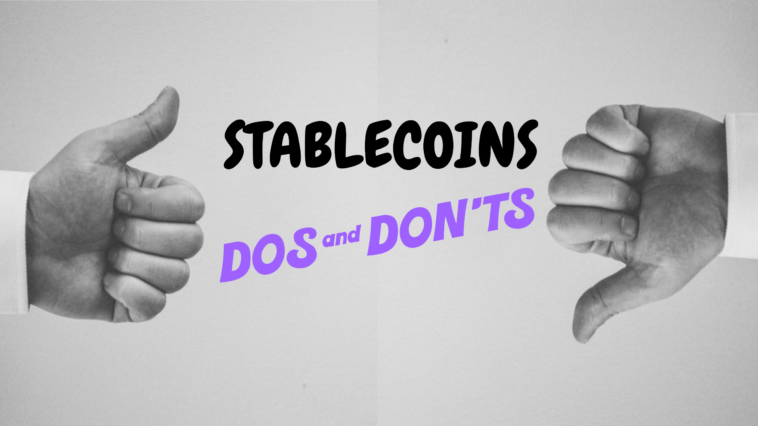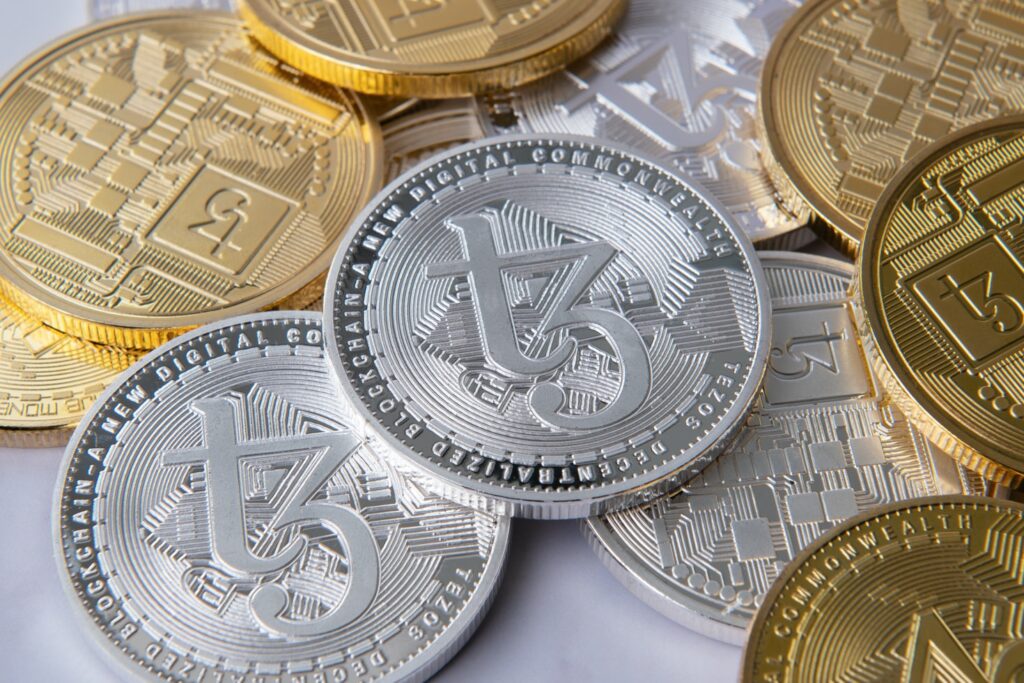In the Crypto world, volatility is a drug. We just can’t seem to get enough of it: whether it’s a juicy flash crash worth buying in or a frenzied bull-run. The problem with volatility is that it’s very sensitive to timing. All too often we end up buying the top only to have our gains wiped away away along with that enthusiastic grin on our face(we call this FOMO’ing in, or ‘fear of missing out’).
What if there was a crypto that was the exact opposite? Enter Stablecoins. They might not sound exciting, but once you hear about some of the benefits these little tokens offer we think you’ll change your mind.
Contents
#1 The purpose of crypto stablecoins
What do stablecoins do? Well, nothing, that's the point. Suppose you made a great trade on Bitcoin, bought Bitcoin for $40,000 and sold at $50,000. Nice! But instead of "taking cash", what if you could realize your nifty trade gains, without taking your money out of crypto?
Well, you could just "cash out" a profitable trade, OR you could "buy" a stablecoin like Tether USD Coin or RSV. These coins work like the dollar except its on the blockchain, basically. The value never changes more than a couple percentage points (temporarily), and you can use it to lock in gains or keep your money ('dry powder' as we say in stocks) available for a rainy day or to catch a sweet market dip.
Another common stablecoin scenario is "weathering the storm". Basically, if you own some Ethereum at a current value of 10k, but your crystal ball tells you the price is going to plummet, you can convert your Ether to a stablecoin and retain all 10k of that value even if the price drops. Once you feel comfortable again, you can trade the stablecoin back for your Ether - usually netting you more Ether. Keep in mind this scenario can backfire if your crystal ball is wrong and Ether goes up while you are "stablecoined up".*
A non-speculative scenario comes into play in countries affected by hyperinflation.
In countries like Venezuela, it's possible you can get paid on Friday and wake up Monday with your paycheck now worth significantly less than payday in purchasing power. Immediately converting your paycheck to a stablecoin until you are ready to spend it, can preserve the value of your money in times of inflation. That is where stablecoins like RSV come into play.
*Note - in the U.S. converting one coin into a stablecoin is a taxable event.
#2 The different types of stablecoins in crypto
It might sound strange that there are different types of stablecoins considering all of them exist to preserve value - typically pegged to the U.S. dollar.
The thing is, not all companies are equally trusted. The first major stablecoin was Tether USD. They claim to be backed by billions of dollars, but no one really knows for sure(it's controversial).
Then came Binance USD. People kind of trust Binance so Binance said "why not make our own". Also, there's USDC. USDC was brought to you by Coinbase. It's kind of like Binance: They're regulated, trusted, so why don't we just make our own stablecoin?
They can exist on many different chains also. With Ethereum, for example, there's the ERC20 token, but we won't bore you with the details.
#3 Crypto-collaterized Stablecoins
Not all stablecoins are pegged to the U.S dollar, however. Some are pegged to the Euro, yen, or many other currencies.
There's also crypto-collateralized stablecoins. These are backed by other cryptocurrencies, financial instruments and even things like land.
They are kind of complicated, but basically their diversification behind the scenes, is aimed to ensure the value is as locked in as possible - to you the end user, you don't care as long as the value stays locked in.
Other stablecoins are pegged to commodities. We talked about the Petro dollar in a previous article.
#4 Regulators don’t like it
Washington has more than its fair of critics when it comes to Stablecoin regulation. Take Elizabeth Warren, for example.
"Stablecoins pose risks to consumers & to our economy. They’re propping up one of the shadiest parts of the crypto world, DeFi, where consumers are least protected from getting scammed. Our regulators need to get serious about clamping down before it is too late."
In a recent paper, economists Gary B. Gorton and Jeffrey Zhang made an analogy of when 19th century era banks issued their own currency. There were frequent 'bank runs' during crashes, which led to massive economy instability.
A lot of the regulation comes from the fact that people are skeptical about whether these exchanges actually have something backing their dollar. USD Tether CLAIMS to have a lot of money, but no one really knows for sure.
If the asset isn't backed by any reserves, it's nothing more than an empty promise. If Tether ever collapsed it could prove to be one of the biggest ponzi schemes in the entire world.
#5 Twitter responds
Most people within the crypto space don't want regulation, however. One twitter user for example, commented:
"When you were younger you were getting 15% interest on your savings. Thanks to the boomer generation who destroyed the dollar and this country, now we get 0.01% interest on our savings and we losing 6.8% a year to inflation.DeFi was created by the “people” to fix this."
"here are the things you care about:- pandering to get reelected here are the things you don't care about:- telling the truth- protecting the people"
And finally, a third user responded
"Our legislators need to get serious about understanding crypto so they stop embarrassing themselves before it is too late.If you don't understand it, don't try to regulate it or slander it."
-------------
Stablecoins have a place in the crypto ecosystem and if done right they can hold a valuable place in your crypto-journey, but we recommend you do some independent research before jumping in. Additionally, the tax implications of stablecoins vary wildly from country to country, so proceed with caution.











Comments
Loading…